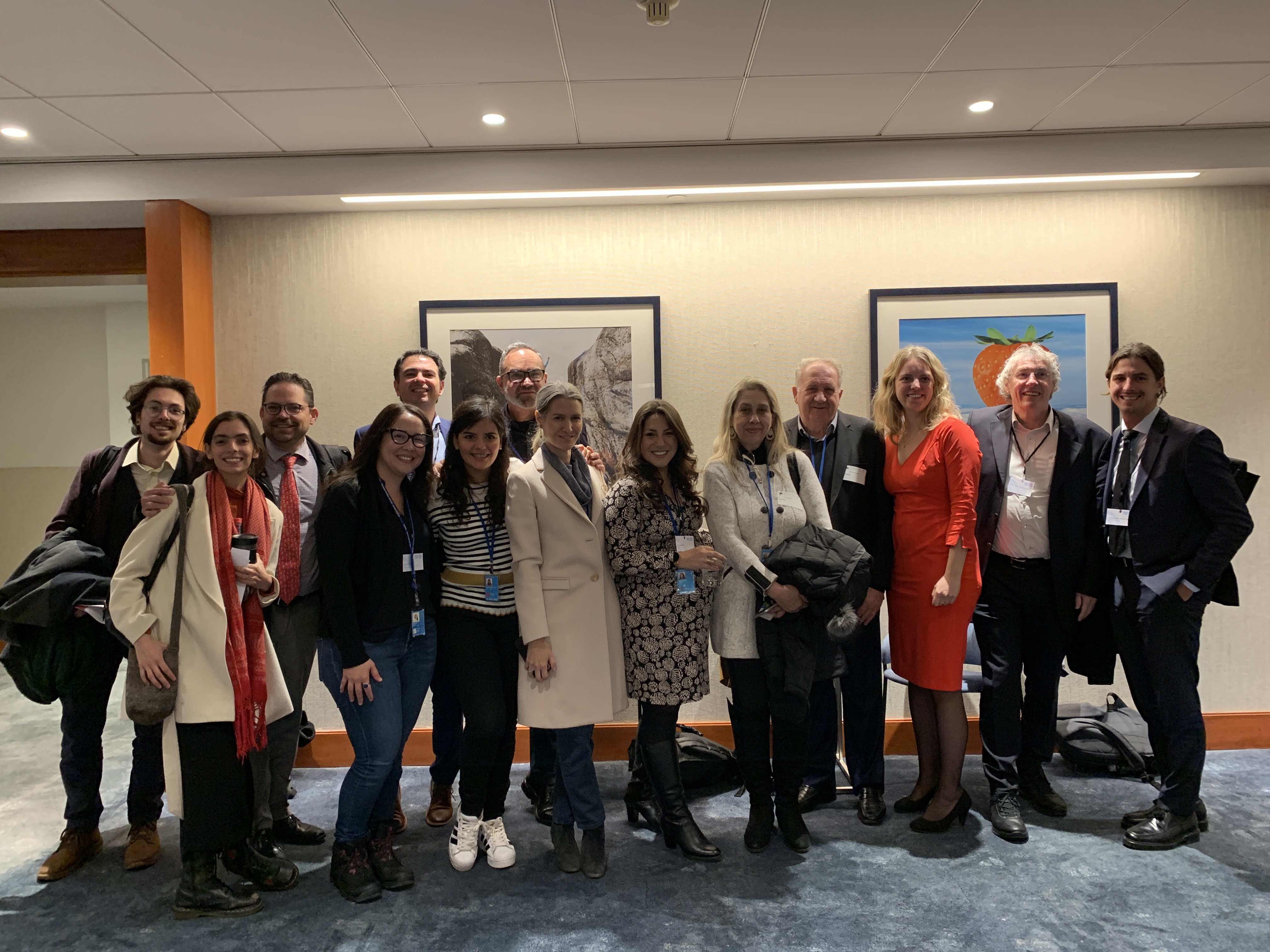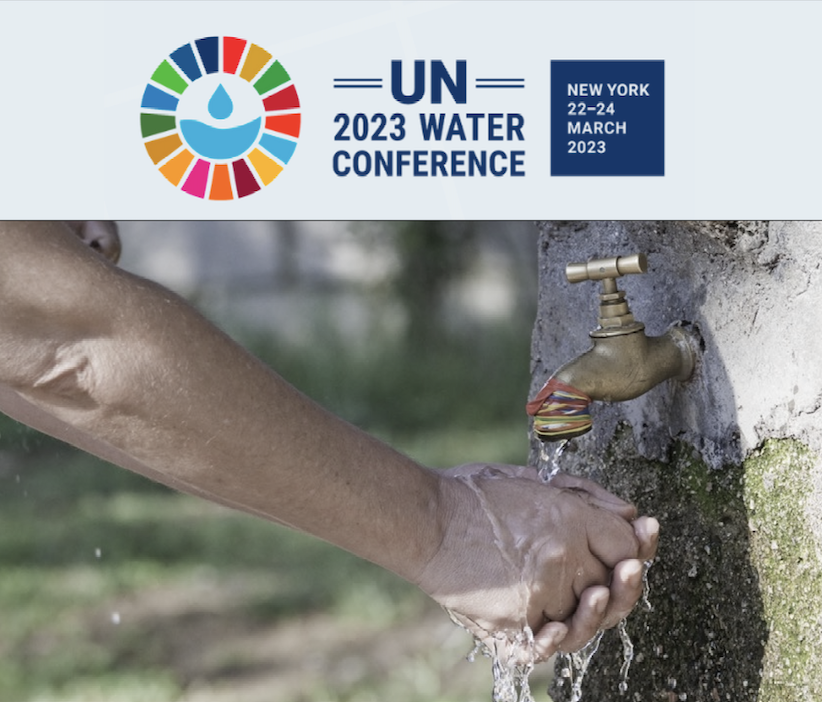ECLAC's participation in the event "Mainstreaming multiple values of water for better informed decision making" held during the United Nations Conference on Water.
Work area(s)
Topic(s)
Last Friday, March 24, 2023, the Natural Resources Division participated in the side event led by the Kingdom of the Netherlands Valuing Water Initiative, in New York, United States.

The side event "Mainstreaming multiple values of water for better informed decision making" was held in person on Friday, March 24, and had the objective of exchanging international experiences and lessons learned from the Regional Valuing Water Processes (Latin America and the Caribbean and Africa). Likewise, it focused on discussing and showing the commitments with the Valuing Water Principles and the identification of needs to put the commitments into practice. ECLAC together with Deltares, the Government of Peru (National Water Authority), the Government of Chile (Ministry of Public Works) and the Global Water Partnership (GWP) participated as co-organizers of the event. The event was structured in two sections, first a high-level session and then a panel discussion, where results and commitments from the regional processes were exchanged.
The high-level panel began with the interventions of the ministerial representatives of the Kingdom of the Netherlands, Tanzania, Peru and Chile who kicked off the event. Then, the discussion panel included the intervention of representatives of the Government of Peru, Chile, Tanzania, as well as the World Parliament of Youth for Water of South Africa and the private sector, through Danone. The panelists commented on the valuing water initiative in practice and shared several of the commitments and actions they are developing.
Subsequently, the session on regional water valuation processes was held with interventions from Deltares, ECLAC and the International Water Management Institute (IWMI). The session began with the intervention of Mr. Reinaldo Peñailillo from Deltares, who recapitulated the regional processes in Latin America and the Caribbean and Africa, mentioning some relevant results of the processes. He also highlighted in a general manner the relevant commitments assumed by different actors in both regions and summarized the identified needs to apply the United Nations Valuing Water Principles.
Next, Ms. Silvia Saravia Matus from ECLAC commented on some reflections on the needs identified in LAC and the importance of applying these principles. Saravia Matus pointed out that ECLAC is currently supporting the SDG 6 Global Acceleration Framework and its five accelerators (financing, data and information, capacity building, innovation and governance). She indicated that this framework coincides with the needs proposed by the Valuaing Water Initiative. She highlighted some data, noting mainly that, according to ECLAC estimates, investing 1.3% of regional GDP annually until 2030 can close the drinking water and sanitation coverage gap and generate 3.9 million direct jobs per year. Likewise, investing in circular wastewater treatment and methane recovery systems for power generation and self-consumption has a cost-benefit ratio of 1.34.
Finally, Saravia Matus shared the Regional Water Action Agenda, which was the main result of the 2023 Regional Water Dialogues, and which constitutes a call to action to mobilize all the political, technical and financial resources of the region. This Agenda includes the main voluntary commitments expressed by LAC countries, civil society, and regional institutions and organizations. Its areas of action are i) the democratic governance of water, ii) the adoption of Integrated Water Resources Management (IWRM) to increase resilience to climate change and mitigate the impact of disasters, iii) the adoption of innovative investment and the formation of public-private alliances, including civil society and local communities, and iv) harmonization of political processes for decision-making, monitoring and management of shared transboundary waters and recognition of community management and of indigenous peoples, for the creation of inclusive alliances for water.
Related content

ECLAC will bring the voice and commitments of Latin America and the Caribbean to the United Nations Water Conference
Next week the United Nations Water Conference will take place in New York, an event that has not been held since 1977. Here, ECLAC will be participating in different events to highlight the needs and…

The Regional Water Dialogues 2023 in Latin America and the Caribbean
Save the date! Within a week (February 1-3), ECLAC will host the Third Edition of the Regional Water Dialogues of LAC, as a preparatory process for the 2023 United Nations Water Conference.